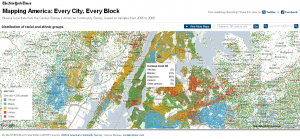Becoming a global enterprise is such an undertaking that we often associate it with companies with large financial muscles, expansive processes, and strong organizational decision-making.
Despite its presumed complexity, in this digital era, many companies are assessing how to transition to a global presence and many have successfully aligned with this way of conducting business.
At the same time, there are thousands of materials available for users to learn about the internationalization and globalization of companies. Most though only address issues of export, import and other expensive strategies that do not always adapt to the reality of business and digital mechanisms.
Does this sound familiar?
Fortunately, in recent decades, the Internet has turned the academy upside down and has enabled professionals in the field to reinvent the techniques of internationalization.
It is true that since its origin the Internet has been understood as a naturally global medium, thanks to its ability to remove geographical barriers, redefine trade rules, streamline and intercultural knowledge processes. This has allowed internationalization to be cheaper and with fewer investment risks, if we compare it with other traditional models.
Although it is clear that not all that shines is gold, the resources that the Internet offers us in global markets cannot make us forget the new complexities that are added to strategies. These are more related to human interactions.
Being digitally global is no longer a differentiator, but a necessity for today’s markets to stand out and be successful. Since the 2000s, companies such as Google emerged with a clear international idea.
They are now in charge of establishing the dynamics of commercial, cultural, political and economic exchange in the West. In order to have access to the world’s information, we must follow its rules and its fundamentals of SEO, User Experience and Core Web Vitals.
This means that to be successful in global markets, the first step is to be successful in Google.
So many brands are having great results- and branching out beyond their country of origin proved to be their best decision yet. Rock Content is one example of a company that boldly and successfully expanded internationally.
Rock Content has invested eight years in the digital and international market during which time we have impacted more than seven million visitors monthly in three unique markets resulting in a 30% quarterly growth rate in the United States.
As Rock Content’s International Marketing supervisor, I am in the unique position to have witnessed exponential growth and vitality across a variety of networks, enterprises and channels.
These are the 4 lessons that we have learned throughout our history as leaders in global content marketing:
- Lesson 1: Generate valuable content according to market needs
- Lesson 2: Google doesn’t work by languages, but by countries
- Lesson 3: You Must Invest in the Right Technology for Google
- Lesson 4: Going international is a mindset
- International SEO is a mixture of research, people, and technology
Lesson 1: Generate valuable content according to market needs
Rock Content, a global Digital Marketing company founded in 2013 in Brazil, implemented internationalization strategies early into its existence. Its first international action was to introduce the term Content Marketing to Brazil.
Although the term was already being implemented in the United States, it was Rock Content that popularized the term, not only in Brazil, but also in all of Latin America.
It became Rock Content’s goal to educate the market more directly on subjects such as SEO, Content Marketing and Content Experiences.
There is a golden rule in Marketing, and we knew how to take advantage of it: to be successful in a market, it is necessary to:
- Know the public well;
- Understand their problems and desires in front of an issue;
- And to be able to offer valuable and appropriate content.
As a result, Rock has been able to gain strength, relevance and authority in the local and international market.
During our first years, we nurtured the Brazilian market with imported Digital Marketing techniques. Now, we rely on a large group of SEO experts to develop our own content and the technological improvements required for digital channels.
This is why we have stood out: because we have fought against market giants to position ourselves as creators of methodologies, applied to the Latin American context, as market educators and, of course, as satisfiers of Google in the face of their demands.
Today, we are the owners of the largest blog in Brazil in terms of marketing issues, and we report more than 2 million visits per month with our Portuguese blog.
We have helped more than 2000 companies in Brazil to communicate with their audience and with Google, using the most current and contextualized strategies for the Latin American SEO market.
Lesson 2: Google doesn’t work by languages, but by countries
This is where my involvement is directly related to these lessons.
In 2015, I joined Rock Content, as a collaborator relocating from Colombia to Brazil, and with the purpose of beginning a rigorous internationalization of our practices with our customers located in Mexico.
That was where we made our first mistake: thinking that fluency in one language was enough to succeed in another country.
The mistake was also mine when I naively accepted, as a Colombian, the challenge of using my native Spanish to enter Mexico. But, working in an Agile environment, this mistake is the reason that I started to develop more accurate strategies.
In hindsight, I was not very clear about the cultural, political, and economic differences that would be reflected in Mexican linguistics. The marketing needs, too, were different from those in Colombia.
Luckily, the error was not expensive.
After a few months of immersion in the company, I began to notice exponential growth in the visits that came from Colombia, and that triggered an alarm in my strategy.
This led me to ask the following questions:
- Why am I bringing Colombians to the blog instead of Mexicans?
- Why is my poignant article on Mercadeo (Marketing in Spanish) positioned in Mexico, but not bringing any relevant traffic from this country?
I had to undertake the arduous task of not only delving into the characteristics and needs of the Mexican market in relation to marketing issues but also starting to relearn Spanish for local purposes.
I realized, once and for all, that Google’s main concern is not to understand or attend to languages, but to deliver relevant content to a country, regardless of the language with which the user seeks information.
In the midst of the insatiable search for concepts in Spanish for Mexico, I came across our golden jewel legacy: the keyword Mercadotecnia (again, Marketing in Spanish, exclusively for Mexico). My goal was to have results in Mexico with Mercadeo, a very Colombian word!
It is useless to insist on a term in a certain language if it doesn’t bring results among the public that is your persona. And this was indeed a beautiful lesson that doesn’t just apply to Spanish, but to English, Portuguese and any language.
If there are Marketing objectives, the language will only be a means to communicate, but the one who will establish the rules of the game for correct communication will always be the target country.
Google, as always, understands better than anyone the correct internationalization techniques.
Extra Lesson: The user’s search intention is fundamental in digital internationalization and SEO
Once we understood the importance of taking care of the linguistic context of a country, Google brought us an extra challenge: the search engine was always going to show us information according to the country we were in and not information about In that case, Mexico, was our target country.
No matter how much we looked for information on Mercadotecnia, since we were located in Brazil and Colombia, our search wasn’t accurate based on where we were in the world.
From there we:
- Earned to use tools such as VPNs;
- Configured Google according to the desired region and language;
- Implemented a more complete SEMrush plan to identify latent opportunities by region and to better interpret the search intention.
A user in Brazil doesn’t have the same information needs as a Colombian, and a Colombian doesn’t have the same needs as a Mexican, and so on.
Sometimes a need may coincide between countries regardless of their language, but this is not always the case. In the end, it is not about what the user is looking for, but the information they want to find.
It was then that we began to substitute terms in our routines such as content translation to content localization, and we began to study in more detail the political and economic maturity of a market in front of a topic in order to solve local problems using our marketing strategies.
Google is a genius
Google.es or google.pt do not correspond to Español (Spanish) or Português (Portuguese) and they do correspond to countries such as España (Spain) and Portugal.
This is why there are the domains google.com.co (Colombia), google.com.mx (Mexico), google.com.br (Brazil), etc. The same for English countries: google.com (US), google.co.uk (UK), google.ca (Canada), etc.
Google knows very well that in order to deliver relevant information that satisfies the user’s search intention, it must divide its domain corresponding to each country, to allow localized searches.
With this information, we learned and mastered a very deep research process. We take into account the needs of people by region, and thanks to this, we are managing to get in touch with almost 3 million users through our blog in Spanish. This includes Mexico, Colombia, Argentina, Spain, Peru and other Spanish-speaking countries.
Google is allowing us to rank well in all these domains, due to the education we provide and the localized relevance with which we build our content for the Latin American market.
Lesson 3: You Must Invest in the Right Technology for Google
The work with SEO and content production never stops, especially when it’s mixed with internationalization issues.
Rock’s international problems were not solved just with the correct localization of the content and with the interpretation of the user’s search intent.
The problems started again after a year of peace when we did a domain migration in order to have our efforts in one place from Brazil, Mexico, Spain, Colombia, among others.
During this migration we made a new mistake: we ignored geographical distances.
The Internet has sold us the false idea that due to quick communication with the world there are no more geographical barriers.
We have seen that regional linguistics are quite present throughout Google and this can represent a barrier for some users. Google never mentioned this important detail which could impair our SEO strategy.
The truth is the following: from Mexico to Brazil it took us 13-hours of direct flight (13 hours because I will not count the layover time at airports). From Brazil to Argentina, we would take perhaps a 3-hour flight.
It is obvious that on the internet we will never take 3 or 13 hours to reach these destinations, but what is true is that charging a website from Brazil to Argentina, could take us a certain amount of milliseconds, and for Mexico, a few more.
This is very abstract, but it is as true as it is important not to ignore it.
I also hope that we are very clear about what an extra millisecond means for Google. The search giant doesn’t wait for anyone, not even a user.
Going back to our migration, we totally ignored the fact that our domain was hosted in Brazil and that if we wanted to continue in contact with Mexico, Google would clearly prioritize domains that were part of the territory.
It was not our case, and it was likely that our technology was configured for search engines in Portuguese. Essentially, Rock Content was lost on the Internet.
We learned to take better care of the technical aspects of our SEO. Although we satisfy the market with correct content localization, we must also satisfy Google with optimized digital channels that allow the page to be loaded quickly and allow the robots to analyze the entire digital structure in an agile way.
Otherwise, we already know the consequences…
But let’s be honest, Google’s recent algorithm update tells us about the Core Web Vitals, but this is not new.
Technical issues versus UX, good technical SEO practices, the speed of a website both to load and to be found by search engines, are nothing new. For us to take our technology seriously, the algorithm had to make them more visible.
According to Sam Underwood, from seotoolbelt.com, “SEO skills increase as we develop design, critical thinking, UX and communication skills.”
At the beginning of the migration, we lost our traffic in both languages. The recovery was tortuous, and it took us a year to return.
Every cloud has a silver lining. Thanks to what happened, we decided to invest in more specialized teams and experts in SEO and programming techniques.
This knowledge was used to:
- Improve the visual style of our website and blogs;
- Improve loading time and release unnecessary domain weights;
- Better invest in CDI mirrors that would allow us to perform better in different countries;
- International SEO techniques to make better technology decisions on a global scale.
With these decisions, we regained Google’s trust, and our domains reached such agility that this time it was easier for us to travel with our content to the entire American continent and even reach Europe that speaks Spanish and Portuguese. The daily results of our blogs were surprising, with numbers never seen before in our company or in our market area.
With this, we can come to a small conclusion: SEO and digital internationalization are based on people, of course, but also on technology.
Google thinks of everything and as an information technology company, it is the first thing that it is going to demand of us.
This was a fundamental basis so that our next internationalization plan would not be so overwhelming. We were already in the final decision to enter the United States: the market of markets, where SEO techniques were first developed.
The mistakes in this new market would not be so easily overcome and Google would be more attentive to our movements, not only in technical and relevance terms, but also in legal and business-minded aspects.
Lesson 4: Going international is a mindset
Digital transformation is here to stay and, for it to work, it is not enough to launch a website and a couple of social networks. You have to build an entire business mindset for these media to communicate with each other. But the result will be a strong brand position and measurable business results.
With digital internationalization, it is the same. It isn’t worth translating a website into another language and producing content for other countries if, as a company, you don’t adopt strategies together and build business values that are truly international.
This implies knowing the laws of traditional internationalization, since it implies hiring people from different countries and dealing with consumption policies that vary from one territory to another.
If a company doesn’t become educated on these issues, it is destined to fail.
Google may be the king of information, but as we get deeper into the practices and the rules of the game, the more we have to master the laws, taxes, and other policies of the world.
This is how we began the third internationalization: Rock’s acquisition of the American firm ScribbleLive in 2019, which led to our triumphant entry into the United States market in 2020.
Although we had already built dynamics to work among Latin Americans, we were going to face at that time not only the change in business decision-making. We were also about to face a corporate cultural change. This began a new phase of our Cultural Intelligence. This term applies to those who initiate an internationalization to gain global relevance — and a change in the way in which marketing is executed.
Today, Rock Content is composed of more than 20 nationalities working together for our three main markets: Brazil, Mexico and the United States.; We are inherently aware that we communicate with many more countries and our practices reflect this globalization.
Before the third internationalization, our blogs in Portuguese and Spanish were bringing results in terms of traffic, Google positioning, conversion and sales opportunities. But we knew that the American market awaited us with more challenges, even though our subject expertise was no longer as new in the new territory as it was at the time in Latin America.
Our bets were on generating an audience and strengthening new strategic issues within our SEO, Content Marketing and Interactive Marketing education.
In the construction of the new blog, we already knew that first, we had to face a detailed search for localized terminologies.
Just as in Portuguese and Spanish there are linguistic variations by regions.
In English the same thing happens, adding the difficulty that in English we can also find spelling varieties, according to the geographical territory.
One example. Which is correct: color or colour? Answer: it depends on the market with which we are communicating.
Venturing into the production of content in English has made us think not only about grammatical compositions, but also about social and even historical structures of the countries. Here is Google again giving us internationalization lessons to enable our fast growth in the United States.
There have been some barriers in regards to cultural perception, technology, business mindset and building a strong SEO strategy, but our American internationalization is going smoothly and allowing us to generate 30% quarterly growth in our traffic.
International SEO is a mixture of research, people, and technology
Market research is the fundamental pillar of all digital internationalization. Research is what allows us to understand market dynamics, linguistic, social, economic and political contexts and what allows us to make appropriate decisions on technology and even commercial investment.
In digital internationalization, it’s critical for an enterprise to invest in resources and, specifically, on analytical intelligence.
Despite the mistakes that are normal for those who start new adventures, I can realize that at Rock Content we always had the best attitudes to learn the professional and even personal impacts that internationalization would bring us.
Now, we are creating a worldwide impact. Today, we have hundreds of thousands of new monthly visits from American territory. Globally, we already have 7 million monthly organic views of our digital channels. We are not done yet! We are looking for millions in the US, too. And we’ll get there!
We are positioning ourselves every day with more keywords in Google and building more relevant Marketing content throughout the Americas.
Keep up to date with the construction and evolution of our global history.
This article was originally published in the Search Engine Journal ebook “The Complete Guide to On-Page SEO“. It’s an awesome read, download it right now!

![[WA] Ultimate Content Marketing Kit](https://rockcontent.com/wp-content/uploads/2022/08/Content-Marketing-Kit-750x200px.jpg)







